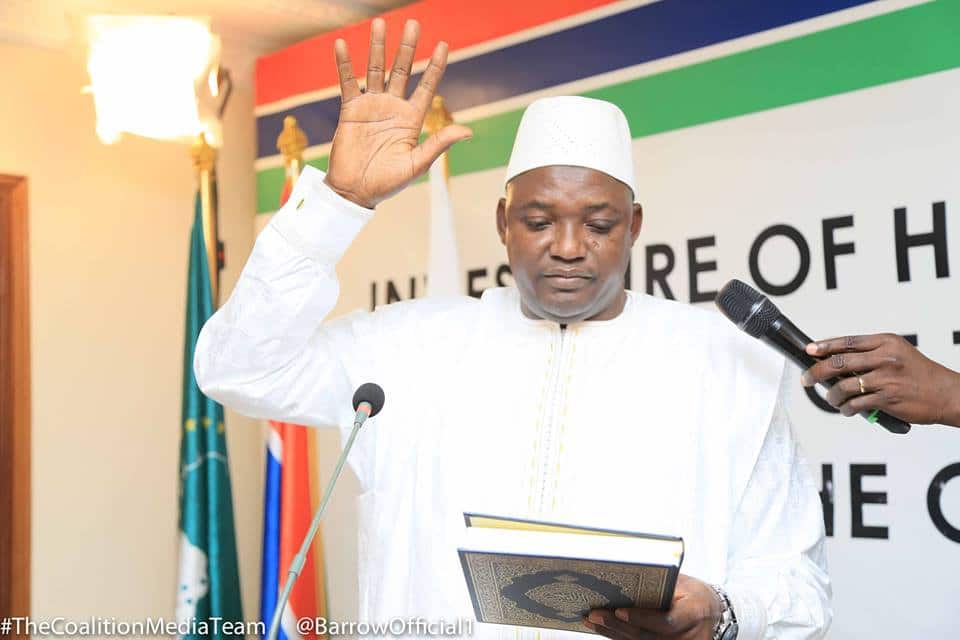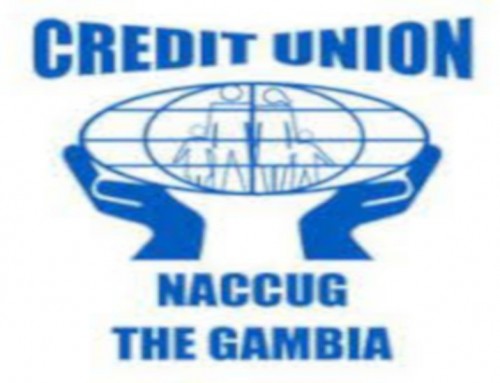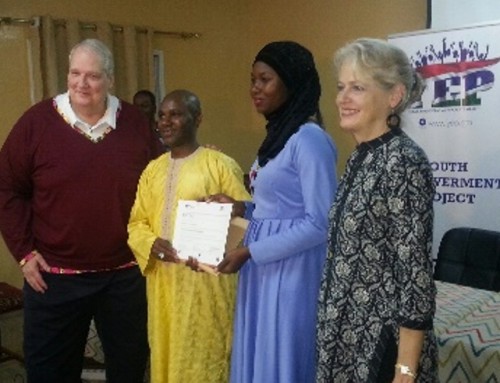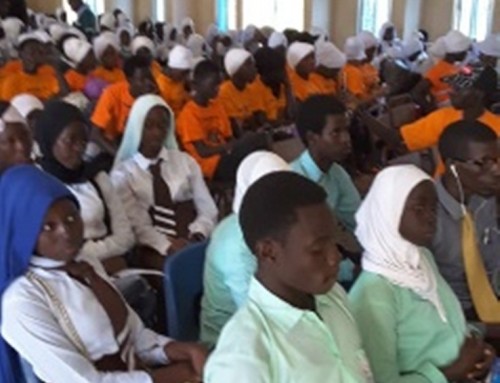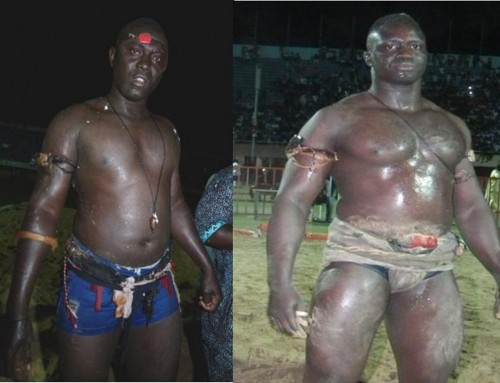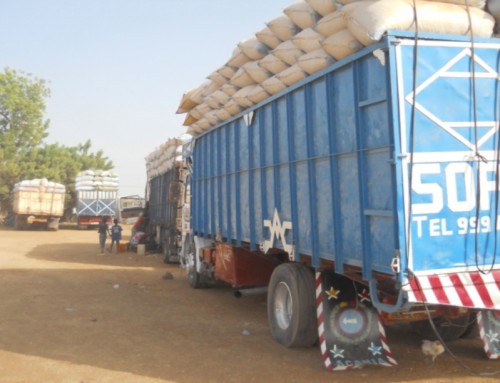BANJUL, Gambia (AP) — Gambia’s President Adama Barrow finally returned home Thursday, solidifying his position as this country’s first new commander in chief in two decades after a political crisis that sent the previous ruler into exile.
Hundreds of people lined the road to the airport ahead of his arrival, while boys on top of packed minibuses played drums on empty gas canisters and women danced in joy. Hundreds more gathered at the airport, where Barrow emerged from the plane in a flowing white robe to shouts of “Welcome! Welcome!”
“I am a happy man today,” Barrow told The Associated Press amid the crush of his arrival. “I think the bad part is finished now.” He promised to get his Cabinet in place and “then get the ball rolling.”
Gambians had eagerly awaited Barrow, who has promised to reverse many of the authoritarian policies of former leader Yahya Jammeh, who was accused of imprisoning, torturing and killing his political opponents.
“Every Gambian must be free. We suffered for 22 years, but now enough is enough,” said Seedia Badjie, 37.
Barrow defeated Jammeh in December elections, but the veteran leader did not want to cede power. The international community, alarmed by Jammeh’s unpredictability and claims that included a bananas-and-herbal-rub “cure” for AIDS, threw its support behind Barrow, a 51-year-old businessman.
Barrow was sworn into office on Jan. 19 at the Gambian Embassy in neighboring Senegal because of security threats as the standoff continued.
Jammeh finally left Gambia last weekend, bowing to international pressure that included a regional military force, ending a more than 22-year rule. The West African troops were poised to oust Jammeh if diplomatic talks failed. They have spent recent days securing the country for Barrow’s arrival.
A larger, more formal ceremony to welcome Barrow home will take place at a later date, spokesman Halifa Sallah said.
About 2,500 of the ECOWAS troops remained in Gambia — in the capital, Banjul, as well as at key crossing points between Gambia and Senegal and at the port and airport, according to Sweden’s U.N. Ambassador Olof Skoog, the current U.N. Security Council president.
Barrow has asked the troops to stay for six months to provide security, said Mohamed Ibn Chambas, special representative of the U.N. secretary-general and head of the U.N. Office for West Africa and the Sahel.
Gambia, with nearly 1.9 million people, has become an example in West Africa as the region strives for stable, democratic changes of power. The world watched as Gambians showed they wanted change, supporting a coalition of opposition parties whose aim was to oust Jammeh and put the country on a path toward greater freedoms.
Jammeh has ended up in Equatorial Guinea, taking luxury cars and other riches amassed during his presidency and accompanied by trusted family and security guards.
When Jammeh left, the streets in Banjul exploded in celebration, with music blaring from speakers and people dancing in the streets.
The new president is faced with immediate challenges, including a government that appears to be broke. Jammeh left the state coffers empty, the new leader has said.
Gambia’s biggest export is peanuts, though the country, the smallest on Africa’s mainland, also has become a significant source of migrants making their way to Europe.
Barrow’s months ahead will be crucial to building a country that can put a climate of fear behind it and work toward reconciliation. He has vowed greater freedoms and reforms to the security forces and the constitution.
Barrow already has named a female vice president, Fatoumata Tambajang, who has called for Jammeh’s prosecution for alleged human rights abuses. But it emerged that she might be above the constitutional age limit for the post, and Barrow said he will form a vetting committee for further appointments.
Sallah, the spokesman, said a human rights commission will be set up and the new government will create a freedom of information act.
“We expect a lot of things from Barrow,” said 26-year-old Modou Fall, who, like many others, wore a #Gambiahasdecided T-shirt to show support for the new president. “We want the forces to stay so that we can reform our army … and we need development in this country.”
___
Associated Press writer Krista Larson in Dakar, Senegal contributed to this report.
source: Associated Press
